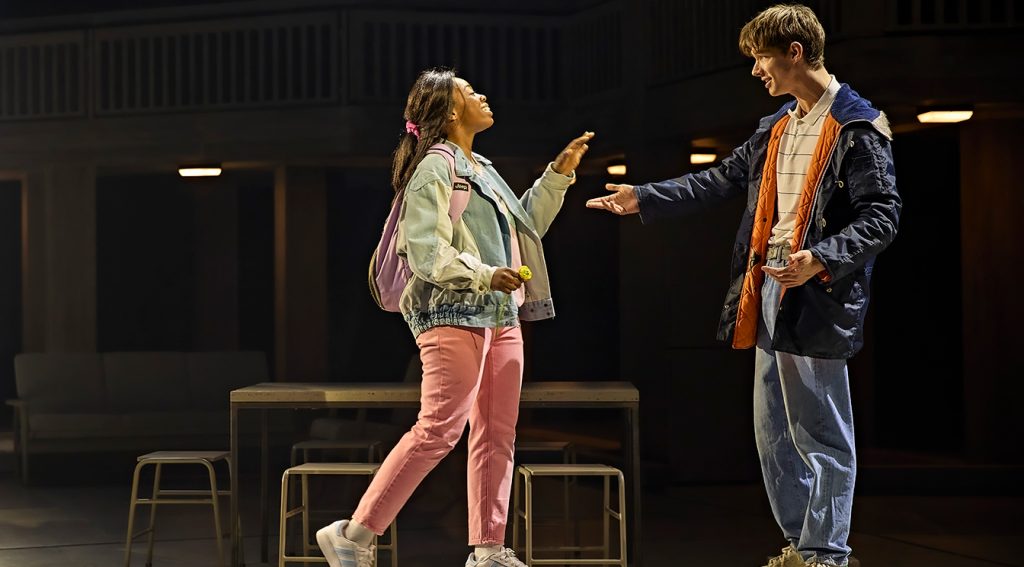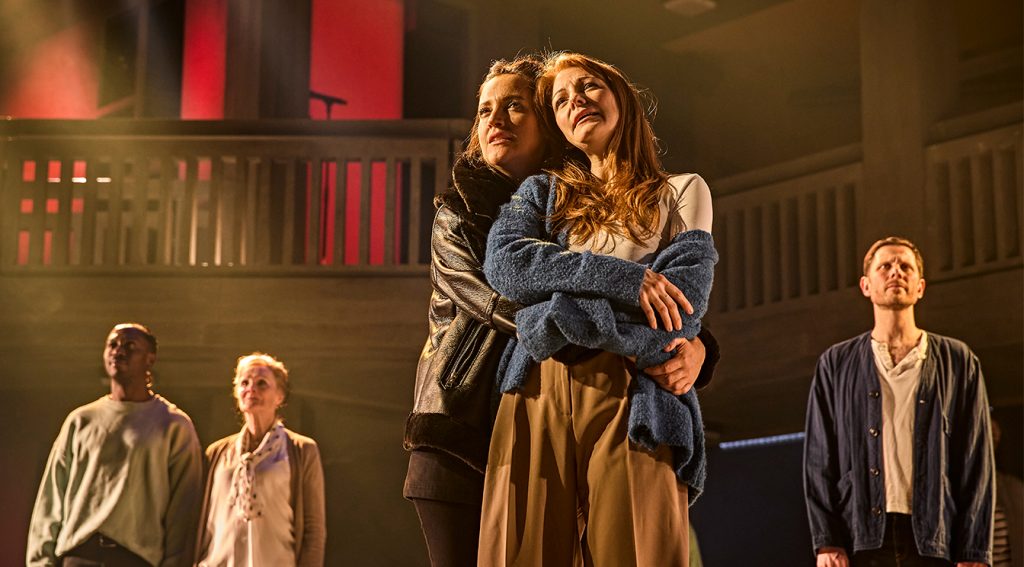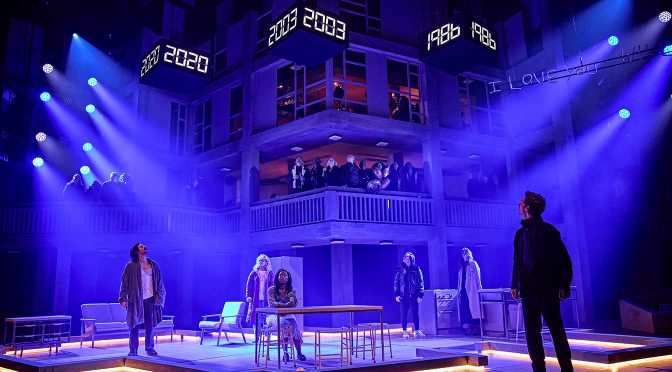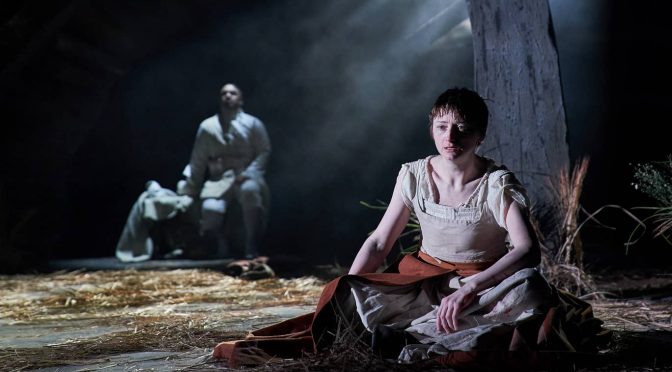Originality is a big draw for this exciting new show from Richard Hawley. It’s about working-class people in Sheffield…which you don’t get very often. And the stories are told in a slightly different way. Events around three groups of characters, from different times, who live in the same tower block flat, are all interwoven.
Set in the 1960s, 1980s, and the present day, we take in a lot of history. From post-war optimism and immigration to industrial decline and unrest, then gentrification. And a good deal of attention is paid to the changing role of women. I’m not sure what a tourist crowd will make of it. But the book from playwright Chris Bush is skilful – nothing is overplayed, personal stories dominate, and these private lives are moving.
The narration is poetic (to a fault at times), beautifully delivered by Mel Lowe and deliberately contrasting in its grandiosity with the action. For it is ordinary people and “the traffic of life” that’s given attention. It’s a simple focus on romance but with such a large cast, and three big love affairs going on, the show feels inclusive and embracing. And, again, just that little bit different.

There are stand-out performances in the show – but not stars in the way you might expect. We follow Rose and Harry over the course of their lives, so Rachel Wooding and Joel Harper-Jackson impress with their performances as these characters. Joy and Jimmy show us young love and Elizabeth Ayodele and Samuel Jordan bring huge charm to these parts. Meanwhile, Poppy and Nikki have problems in the present day and make angsty roles for Laura Pitt-Pulford and Lauryn Redding, who do a great job. The singing from all is fantastic. But this précis doesn’t reveal how much is going on.

Standing at the Sky’s Edge is constructed to give equal weight to the different stories. Even more, to highlight other characters and the ensemble who join them. It creates a very different feel as the whole cast take moments as leads. And when they all sing together, there are guaranteed goosebumps. The result is, at times, odd. An audience likes a focus. But through the talents of director Robert Hastie, it isn’t confusing. And the sense of place, of community, created is incredible. Originally from The Crucible Theatre in Sheffield, via The National Theatre, Ben Stones’ excellent set and costume design help immeasurably here.
Above all, Hawley’s songs are fantastic. A great mix of styles with strong lyrics and a bold emphasis on big emotions. Not one number is bad, and plenty bring a tear to the eye. The show does lose momentum after a tremendous opening for act two. There are fewer songs and Bush’s dialogue starts to dominate. And, without giving to much away, things become morbid. A lot of time has been spent telling us Poppy and Nikki’s relationship is unhealthy, so it is odd to have it as some kind of happy ending. I guess that at least the surprises keep coming. Standing at the Sky’s Edge is one of the most original musicals I’ve seen in a long time.
Until 3 August 2024
Photos by Brinkhoff-Moegenburg


